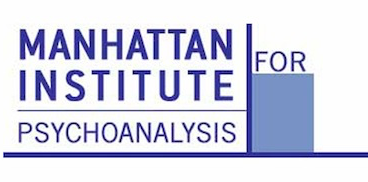What’s an institute without its candidates?
The Manhattan Institute’s candidates come from all walks of life, entering into training at various phases of their careers and with a range of professional goals in mind. Some are seasoned clinicians seeking post-graduate training; others, pursuing a new career altogether. Still others are testing the waters in the one-year program or receiving specialized training in trauma studies.
As part of our series on the psychoanalytic community, license qualifying candidate and Analysis Now blog web editor Justine Duhr, MFA, asked our candidates about their connection to MIP, what they like about it and why they chose it over other institutes.
Here’s what they had to say:
Cynthia Chalker, CPP, Year 5:
“As part of this community, the candidates I have met, especially the last two years, have offered a sense of camaraderie and support I’ve craved.”
Justine Duhr, License Qualifying Program (LQP), Year 2:
“Before I entered training, I hardly knew what a psychoanalytic institute was, let alone what it would be like to be a member of one. Now that I know, I feel that I can never go back. I’m hard-pressed to remember a time I’ve felt more immersed and intellectually stimulated; the work is fascinating. Every day, I am challenged anew. Put simply, my training at MIP is an experience unlike any other that has changed the way I view myself and the world.”
Emily Fitton, Certificate Program in Trauma Studies (CPTS), Year 2:
“MIP has excellent, accomplished and published senior clinicians on the faculty! For example, I’ve had classes with Elizabeth Howell, a leading authority on dissociative processes, Fran Anderson, a leading authority on psycho-somatic work, Grant Brenner, highly accomplished in neurophysiology. MIP’s supervisor list is also made of up similar senior clinicians. I’ve had the privilege of supervising with Elizabeth Howell, and am currently supervising with Eli Zal. I appreciate being part of this community, as I’ve also expanded my network of other like-minded clinicians. The listserv is a great way to stay connected. My former post-graduate institute discouraged candidates from building community, but MIP seems to actively foster it, with the listserv and parties and educational events.”
Emily Haseltine, CPTS, Year 2:
“Being connected to MIP means that I am part of a community of learners. This is meaningful to me because I am part of an organization that enriches, supports, and enlivens my professional life.”
Yurilka Hernandez, One-Year Program in Psychoanalytic Psychotherapy (OYP):
“After graduating from college I realized that I wasn’t fully ready to work in a clinical setting because I was missing fundamental skills to treat people in a more intimate way. I looked at other institutes and decided on MIP because it had the one-year program. It is important for me to test the waters before signing on for a five-year commitment—not to mention it was one of the least expensive institutes out there. I have learned a great deal since I enrolled. It has been a great experience and I got to meet great people. The most enjoyable part is my clinical supervisor, Dr. Spitz.”
Yelena Ivanova, CPP, Year 2:
“As a social worker and psychotherapist, my drive to excel in my work and deepen my engagement with the field led me to MIP. Being connected to a community and individuals who are rich in experience and knowledge is an important aspect of my life.”
Mary Lippin, CPP, Year 3:
“Recently I’ve been feeling MIP is the best book club/study group ever. I am looking for a group I feel I belong to, the practice in doing what it takes to achieve that. In readings and classes (and analysis), I find people who are trying and sometimes succeeding in articulating things that resonate with me… things I never heard anyone talk about. So my deep longing for connection with people who “get” me is awakened. The persistence, dedication, and hard work it takes to keep this thing going is awesome.”
Karen Nelson, CPTS, Year 1:
“Being connected to an institute means not being completely untethered in the lonely field of psychoanalytic private practice. It means continuing to exercise my brain and stay mentally and intellectually engaged in the field. And it means maintaining a supportive relationship with a well-trained supervisor I can look to for guidance and validation.”
P.B., Certificate Program in Psychoanalysis (CPP), Year 2:
“Being able to get connected to teaching and practicing analysts who have been around and back…access to information not otherwise known or available to professionals who have never had an institute connection…evolve and grow with classmates who begin and graduate with you…referrals and resource goldmine from classmates, instructors, patients, supervisors, and more.”
Amy Storey, CPTS, Year 1:
“Being connected to an institute offers a tremendous opportunity to become part of a community of like-minded people with whom to study and converse. This is further enhanced by the fortuitous situation of psychoanalysis in New York City; many of the founding members and true giants within the field, spanning all diverse divisions of theory and practice, are HERE, alive and present, making the conversation very vital and poignant. Through this community we are introduced to some of the best minds around the world, past and present. I am very grateful to be able to participate; we are surrounded by excellence.”
Hili Tsarfati, CPTS, Year 1:
“A long-term supportive professional community.”
Rosemarie Verderame, CPTS, Year 2:
“Being connected to an institute means to me having a supportive community where I can develop as a therapist.”
Kaitlin Ziegler, OYP:
“Being at MIP has given me access to a community of knowledgeable professionals and a wealth of resources. Each instructor and classmate has contributed unique dynamics to the courses. The reading material is comprehensive, eye-opening, and philosophically intriguing. At the same time, the material is practical and relevant enough to apply clinically in daily practice.”
Interested to learn more about training at MIP? Join us for an open house on Friday, March 10 at 7 p.m. at the NYU Kimmel Center, 60 Washington Square South at La Guardia Place, Room KC #808.
Faculty and graduates will answer questions about MIP’s array of training programs, followed by a colloquium at 8 p.m. featuring Diane Barclay, LCSW, presenting “An Analyst Has a Birthday: Forgiveness as a Psychoanalytic Concept” with discussant Jody Messler Davies, PhD.
Continuing Education Units: 2 contact hours. Cost: $40. Click here to register and pay.
Attendance without CE credits suggested contribution: $20 at the door. Click here to RSVP.
Justine Duhr, MFA, is a license qualifying candidate at MIP. She serves as web editor for the Analysis Now blog and chairs SCOOP, MIP’s Student Cooperative. She owns and operates WriteByNight, a writers’ service dedicated to helping people achieve their creative potential and literary goals.








Leave a Reply
Your email is safe with us.